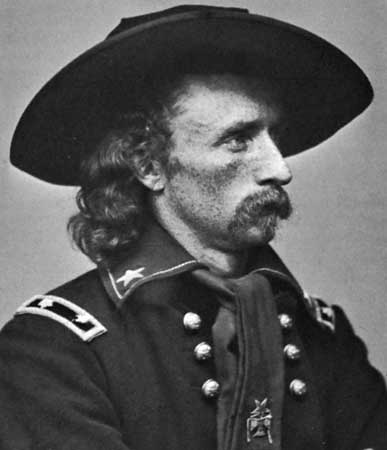I've recently become a subscriber to
Imprimis --
the most influential conservative publication you've never heard of -- because A) I want to keep tabs on influential conservatives and B) it's free. It's published by Hillsdale College in Michigan, and consists mainly of reprinted speeches from notable conservative thinkers and writers. It's pleasantly old-fashioned, a throwback to the olden days of pamphleteering.
Just got my first issue in the mail today, and it's actually kind of a back issue, from back in December, featuring a speech by Hillsdale College President Larry P. Arnn. In it, he seeks to contrast the bullying and tyrannical nature of the U.S. government today -- exemplified by the mandates included in the Affordable Care Act -- with the liberating nature of the U.S. government in the early years of the republic ... as exemplified by the
Homestead Act.
A quick primer on the Homestead Act, from Wikipedia:
The Homestead Act is one of several United States federal laws that gave an applicant freehold title to up to 160 acres (1/4 section, 65 hectares) of undeveloped federal land outside the original 13 colonies. The law required three steps: file an application, improve the land, and file for deed of title. Anyone who had never taken up arms against the U.S. government, including freed slaves, could file an application and evidence of improvements to a federal land office.
And
here's Arnn, describing the act's liberating effects:
What the Homestead Act did was to take the western land of the United States—surely one of the greatest assets ever held by any government in history—and give 160-acre plots to anyone with the backbone to live on them and work them. These plots of land were granted regardless of who someone was and with the certainty that no one settling on them could ever vote for this congressman or that. It is one of the greatest impartial acts of legislation in all of human history. It, and things like it, built America and the character of the people who spread across it.
The principle that justified the Homestead Act has two parts, and both are found in the first 15 lines of the Declaration of Independence. The first is the idea of human equality—the idea that it does not matter what race or what family you come from, it only matters what you do—which has been the source of our greatest struggles in an attempt to live up to it.
Let's stop right there,
because Arnn is committing a pretty overt act of historical amnesia in order to frame his critique of modern government this way. He's forgetting -- probably deliberately -- that people used to live on land that was "settled" under the Homestead Act.
Native Americans. They may not have held title to the land that was taken by the settlers, but they surely owned it under any meaningful sense of the term.
In order for the settlers to claim and improve the land, the United States government had to send armies west to kill and clear out the Native Americans who'd lived on those lands for centuries, perhaps even millennia.
So the actual history of the Homestead Act is nearly the opposite of what Arnn advocates here: Rather than being predicated on the idea of human equality, it was steeped in racism -- the idea that the "Indians" who'd lived in America before Europeans were here were less than fully human. And interestingly,
it may have been the most redistributive act the U.S. government has ever undertaken -- the genocidal-level force of arms used to take land (wealth!) and given to anybody who, well, wanted it.
I'm not suggesting that the land be given back: History has happened.
Maybe I'm being churlish. But Arnn offers up his Homestead Act example in the course of making the case that A) "absolute truth" exists and B) our leaders aren't well-educated or even believers in absolute truth -- and thank God there's Hillsdale College to offer a remedy! Arnn's version of history, though, omits huge swaths of context and fact in order to cast a tyrannical and socialistic act as embodying the most noble traditions of American freedom and equality. His example, it seems to me, greatly undermines the point he's trying to make.

